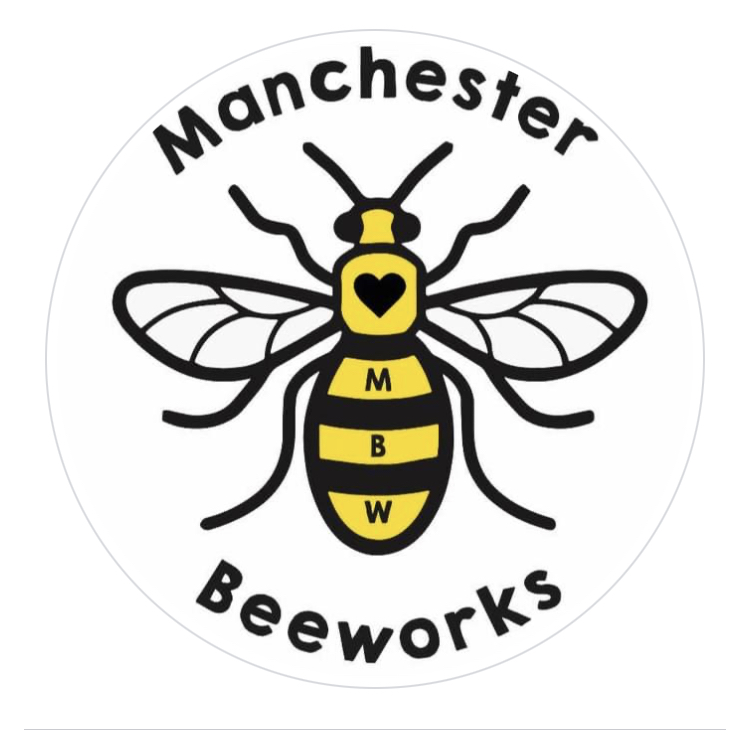Make your garden a bee friendly space. Here’s how!
- Manchester Bee Works
- Mar 23, 2025
- 3 min read
Updated: Mar 31, 2025
Urban gardens are vibrant spaces, often serving as green oases amidst the concrete jungle. While vegetables, herbs, and flowers take centre stage, one key player remains largely unseen yet profoundly impactful—the bees. These buzzing little creatures are essential for pollination, ensuring the health and productivity of our gardens. This post will explore the vital role bees play in urban gardens and provide actionable steps to create bee-friendly spaces that support these important pollinators.
Why Bees Matter
Bees may be small, but their contribution to our ecosystem is enormous. They help pollinate about one-third of the food we consume, including crucial fruits, vegetables, and nuts. For instance, researchers estimate that over 75% of the world's flowering plants depend on animal pollination, with bees being the primary pollinators in many cases. As urban farming becomes more prevalent, the presence of bees in these environments is increasingly important. Without them, many plants would struggle to reproduce, leading to a decline in plant diversity. This drop in diversity can significantly affect the health of our environment.

Creating Bee-Friendly Spaces
Building a bee-friendly urban garden begins with understanding what bees need. Here are two essential steps to ensure that your garden is a welcoming haven for bees:
1. Choose the Right Plants
Selecting the right plants is crucial. Bees are attracted to flowers rich in nectar and pollen. Opt for native flowering plants, as they are best suited to local bee species. It is wise to include a mix of blossoms that bloom at different times throughout the growing season. This approach ensures that bees have a steady food supply from early spring to late fall.
Consider the following examples:
Lavender: Its fragrant blooms attract numerous bee species.
Sunflowers: These tall beauties provide ample pollen, making them a favourite among bees.
Echinacea (Coneflower): This native perennial offers both nectar and pollen, benefiting a variety of local pollinators.

2. Avoid Pesticides
Using pesticides in urban gardens poses a significant threat to bee populations. Many conventional pesticides are toxic to bees and can lead to declining health or even death. A report from the Centre for Pollinator Research shows that pesticide exposure can result in a 50% decrease in bee foraging efficiency. To protect these important pollinators, adopt organic pest management practices. This might include introducing beneficial insects, utilising natural remedies, and manually removing pests. By doing this, you create a healthier environment for bees and other wildlife.
3. Provide Shelter and Nesting Sites
Bees require safe spaces to rest and nest. While honeybees live in hives, many species are solitary and prefer to nest in the ground or hollow plant stems. Creating a varied garden structure provides suitable habitats. Here are some ideas for enhancing bee shelter:
Leave some bare ground: Allow patches of soil to remain exposed for ground-nesting bees.
Add a bee hotel: Craft or purchase bee hotels that host solitary bee species and protect them from predators.
Include native grasses and shrubs: These plants offer natural shelters and foraging opportunities.

Community Engagement: The Power of Education
Raising awareness about bees can lead to community action. Organising workshops, educational events, or guided garden tours helps neighbours learn more about the importance of bees and how they can contribute. Encourage local schools to integrate gardening programs emphasising pollinator education. This collective effort fosters a network of bee-friendly spaces, making a significant impact on local ecosystems.
The Rewards of Supporting Bees
Bee-friendly gardens not only enhance local biodiversity, but they also produce healthier and more abundant yields. Gardens full of bees tend to yield better fruits and flowers due to effective pollination. Additionally, these vibrant spaces become sources of pride and enjoyment for urban residents.
By cultivating a bee-friendly garden, gardeners become stewards of the environment. They contribute to sustainability efforts, combating the decline of pollinator populations and promoting ecological balance in their communities.
Together for a Sustainable Future
Urban gardens are vital components of city life, promoting community well-being and environmental health. When gardeners take steps to support bees, they create spaces where these essential pollinators can thrive, ultimately enhancing the beauty and productivity of their gardens. By selecting the right plants, avoiding harmful chemicals, providing shelter, and engaging the community, individual efforts can lead to a healthier ecosystem.
Let us unite to make our urban landscapes bee-friendly and celebrate the remarkable role these insects play in our lives. After all, a garden buzzing with bees symbolises life and our commitment to a sustainable future.





Comments